'이존영' 기자의 전체기사
-
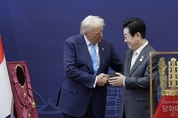
Diplomacy President Lee presents US President Trump with the Grand O…
By Diplomacy Journal Lee Jon-young President Lee Jae-myung presented the highest order of honor to US President Donald Trump during his state visit to South Korea on October 29, along with a replica of a gold crown. President Lee demonstrated the highest level of courtesy and meticulous hospitality, demonstrating the government's commitment to strengthening the relationship with President Trump and the ROK-US alliance. President Lee presented the Grand Order of Mugunghwa to President Trump following an official welcoming ceremony held at the Gyeongju National Museum, the venue for the ROK-US s
- 이존영 기자
- 2025-10-29 17:15
-
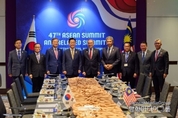
Diplomacy President Lee holds summit with Malaysian Prime Minister Anw…
By Diplomacy Journal Lee Jon-young President Lee Jae-myung held his first summit with Malaysian Prime Minister Anwar Ibrahim on October 27. President Lee expressed his deep gratitude for his visit to Malaysia, the ASEAN chair this year and a long-standing friendly nation, as his first ASEAN country since taking office. Prime Minister Anwar expressed his gratitude for President Lee's visit, despite his busy schedule preparing for the APEC summit. Prime Minister Anwar further expressed his appreciation for President Lee's visit to Malaysia, saying it will provide a significant impetus for advanc
- 이존영 기자
- 2025-10-29 10:26
-
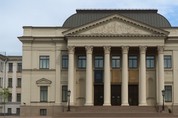
Arts-Culture "The World's First K-Folk Painting Exhibition" -- Invited by the Na…
By Diplomacy Journal Lee Jon-young The traditions of Korea, the easternmost tip, are blossoming in Minsk, Belarus, the heart of Eastern Europe. The "World's First K-Folk Painting Exhibition," held from October 30 to November 16, is the first overseas special exhibition of Korean folk painting, officially invited by the National Museum of Folk Art of Belarus. This exhibition, co-hosted by the World Culture Promotion Foundation and the Diplomacy Journal, features 52 Korean folk painting artists, opening a forum for cultural diplomacy where tradition and modernity, East and West, converge. Under
- 이존영 기자
- 2025-10-27 11:40
-
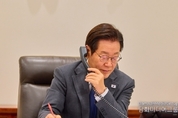
Diplomacy President Lee congratulates Japan's Prime Minister Takaic…
By Diplomacy Journal Lee Jon-young President Lee Jae-myung shared a congratulatory message on October 21 for Japan's Prime Minister Sanae Takaichi on her inauguration. President Lee stated on his SNS that day, “As neighbors sharing a front yard, South Korea and Japan have developed cooperative relations across diverse fields including politics, security, economy, socio-culture, and people-to-people exchanges.” He added, “We have entered an era where approximately 12 million citizens from both nations visit each other—something unimaginable 60 years ago.” President Lee stated, “We now stand at
- 이존영 기자
- 2025-10-22 16:30
-
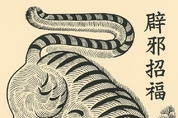
Arts-Culture [Damwhachongsa Column] “The tiger of Byeoksachobok…
By Diplomacy Journal Lee Jon-young Tigers in Joseon Dynasty folk paintings always bore two faces. The majesty of the mountain's lord and the face of a friend who brings laughter to the people. “The tiger of Byeoksachobok (辟邪招福)” painting perfectly harmonizes these two faces. Even within its round, humorous eyes, a living energy flashes in every stroke. These lines are not mere decoration; they are the lines of a spell to repel evil spirits and invite good fortune. It is the very talisman of folk painting. On the right side of the painting, the four characters ‘Byeoksachobok (辟邪招福)’ are clearly
- 이존영 기자
- 2025-10-22 15:17
-
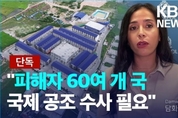
Global [Analysis by Diplomacy Journal] ‘Kidnapping incident,’ C…
By Diplomacy Journal Lee Jon-young Recent consecutive kidnappings and detentions targeting Koreans in Cambodia have escalated beyond mere public safety concerns, shaking the diplomatic relations between South Korea and Cambodia. Particularly as these incidents are revealed to be the work of international criminal organizations colluding with Cambodia's corrupt authorities, the gravity of the situation is escalating toward potential international sanctions against Cambodia. This shocking crisis is shaking the very foundation of South Korea's core diplomatic policy, the ‘New Southern Policy,’ wh
- 이존영 기자
- 2025-10-22 13:51
-
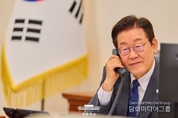
Diplomacy President Lee holds phone call with Egyptian President Abd…
By Diplomacy Journal Lee Jon-young President Lee Jae-myung held his first phone call with Egyptian President Abdel Fattah El-Sisi on October 20, following his inauguration. The two leaders exchanged greetings of welcome and congratulations on the 30th anniversary of diplomatic relations between Korea and Egypt this year, and highly valued the development of the cooperative relationship between the two countries as ‘Comprehensive Cooperative Partners’. They agreed that since establishing diplomatic ties in 1995, the two nations have fostered mutually beneficial cooperation across diverse fields
- 이존영 기자
- 2025-10-21 10:41
-
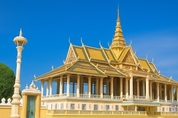
Global [Special Column] Cambodia, a Buddhist nation: The land…
By Diplomacy Journal Lee Jon-young Cambodia declares that over 95% of its people practice Theravada Buddhism, establishing compassion and the Middle Way as the nation's fundamental principles. Yet today's Cambodia is transforming into a nation where greed prevails over compassion, and corruption over the Middle Way. In recent years, crimes like foreigner abductions, human trafficking, online gambling, and drug dealing have surged, effectively turning the country into a hotbed of crime. Criminals collude with public officials, the law becomes powerless before money, and the victims are always f
- 이존영 기자
- 2025-10-20 15:12
-
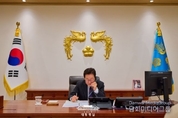
Diplomacy President Lee holds first phone call with Thai Prime Minister A…
By Diplomacy Journal Lee Jon-young President Lee Jae-myung held his first phone call with Thai Prime Minister Anutin Charnvirakul at the Presidential Office on Oct. 16, exchanging views on ways to develop bilateral relations. President Lee congratulated Prime Minister Anutin on his inauguration last September, stating that he values the relationship with Thailand, a traditional ally that fought alongside Korea for freedom and peace during the Korean War. The two leaders acknowledged the significant progress in bilateral relations across various fields, including trade, investment, and people-t
- 이존영 기자
- 2025-10-17 10:23
-
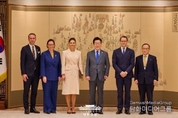
Diplomacy President Lee Jae-myung meets with Crown Princess Victoria…
By Diplomacy Journal Lee Jon-young President Lee Jae-myung met with Crown Princess Victoria of Sweden on the afternoon of October 15. Crown Princess Victoria is on an official visit to South Korea from October 15 to 17. President Lee welcomed Crown Princess Victoria's visit to Korea and expressed hope that the visit would serve as an opportunity to further strengthen the long-standing friendly cooperative relationship between the two countries across various fields. Crown Princess Victoria expressed her pleasure at meeting President Lee. She noted that during this visit, meetings between the b
- 이존영 기자
- 2025-10-16 11:18
-
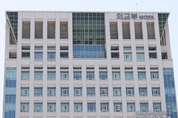
Global [Cambodia: A Nation of Crime] Part 2: An absent state, powe…
By Diplomacy Journal Lee Jon-young Two months have passed since Korean university student Park (22) was kidnapped and murdered in Cambodia. Only after his death became known to the world did the government declare a “full-scale response.” But by then, Park had already returned as a cold corpse. And the people asked coldly. “Where the hell was the government?” Delayed cooperation, shifting blame, a life obscured by ‘procedures’. When the victim's family reported in late July that “my brother seems to be held captive,” police immediately confirmed his cell phone location was overseas. Yet, no im
- 이존영 기자
- 2025-10-15 11:36
-
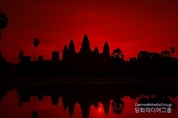
Global [Cambodia: A nation of crime] Part 1: Cambodia's true colo…
By Diplomacy Journal Lee Jon-young Once known as the ‘Smile of Angkor Wat,’ Cambodia is no longer a peaceful tourist destination. The recent case of Korean university student Park (22) being kidnapped, imprisoned, and murdered locally is a symbolic cross-section of this reality. His tragic death is not merely the misfortune of one individual, but reveals the true nature of a ‘country where crime has become an industry’. Cambodia has rapidly grown as a Southeast Asian tourism hub, but its underbelly is dark. An ‘invisible criminal market’—a tangled web of online scams, illegal gambling, human t
- 이존영 기자
- 2025-10-14 11:38
-
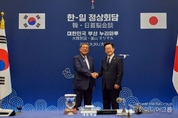
Diplomacy President Lee holds a summit with Japanese Prime Minister S…
By Diplomacy Journal Lee Jon-young President Lee Jae-myung held a South Korea-Japan summit meeting with Japanese Prime Minister Shigeru Ishiba in Busan on September 30. The two leaders exchanged broad and in-depth views on ways to strengthen practical cooperation between South Korea and Japan and the necessity of cooperation at the regional and global levels. The two leaders welcomed the completion of shuttle diplomacy between the two countries, marked by Prime Minister Ishiba's visit to Busan just one month after President Lee's visit to Japan last month. They also expressed full agreement on
- 이존영 기자
- 2025-10-01 10:40
-
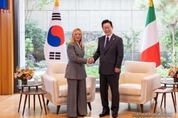
Diplomacy President Lee holds bilateral talks with Italian Prime Minister M…
By Diplomacy Journal Lee Jon-young President Lee Jae-myung held his first bilateral meeting with Italian Prime Minister Giorgia Meloni in New York on September 24 (local time), who was attending the high-level segment of the UN General Assembly. Prime Minister Meloni stated that the two countries have been developing balanced cooperative relations across various fields, including trade and investment. She assessed that the potential for expanding economic cooperation between the two nations is very high, as demonstrated by events such as the successful Korea-Italy Business Forum held in Seoul
- 이존영 기자
- 2025-09-26 14:59
-
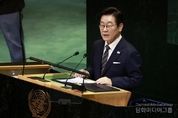
Diplomacy President Lee Jae-myung meets with US Treasury Secretary S…
By Diplomacy Journal Lee Jon-young President Lee Jae-myung met with US Treasury Secretary Scott Bessent during his visit to the United Nations General Assembly on September 24. He stated, "While the US and Japan recently reached an agreement on an 'Investment Package with the US,' Korea differs significantly from Japan in terms of economic scale, foreign exchange market, and infrastructure. I hope these aspects will be taken into consideration and that negotiations will proceed smoothly." Kim Yong-beom, Chief of Staff to the President for Policy, announced this during a briefing at a press cen
- 이존영 기자
- 2025-09-25 11:33
-
2025-12-25 23:06
2026. How U.S.–China Rivalry and Trilateral Supply Chains Are Redefining Indo-Pacific Order
-
2025-12-24 03:11
KOREAZ Awards Highlight Korea’s Youth-Centered Digital Diplomacy Strategy
-
2025-12-19 13:33
Embassy of Qatar in Korea Hosts National Day Reception in Seoul
-
2025-12-19 13:23
Uzbekistan–Japan: Expanding the Boundaries of Strategic Partnership
-
2025-12-18 23:23
Instituto Cervantes in Seoul presented principal works of Guatemala's First Nobel Laureate in Literature

















